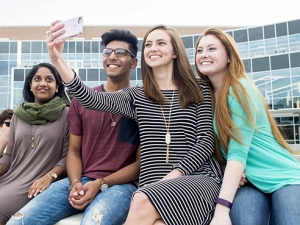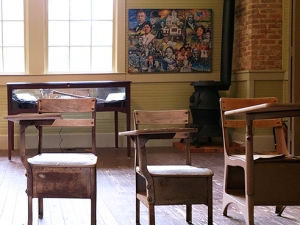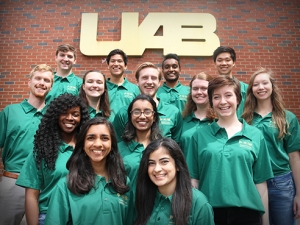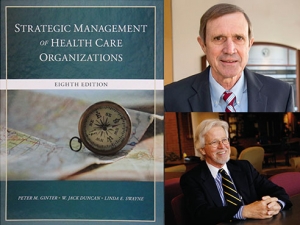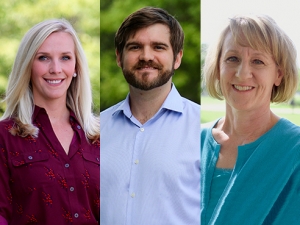 |
UAB was in on the ground floor when the Southern Association of Colleges and Schools Commission on Colleges (SACS) first began requiring universities seeking reaffirmation of accreditation to develop a Quality Enhancement Plan, which sets goals for student learning and outlines steps the university will take to reach them.
And when UAB was up for reaccreditation in 2004-2005, it’s fair to say the institution’s first attempt at satisfying the A Quality Enhancement Plan (QEP) requirement was a bit of a learning curve, both for SACS and UAB.
“I think that’s an accurate picture,” says Julio Rivera, Ph.D., associate professor of Business and chair of the UAB Faculty Senate. “It was a new experience for faculty, administration and SACS. I think all sides were trying to figure out what a QEP should be and look like. Now that we’ve done it, I think we’ve got a better picture. The main goal is to have broad participation in the process, and then ensure that things are selected that we can focus on across all schools.”
Preparations have been under way for several months to develop UAB’s next QEP, due in large part to UAB’s reaccreditation cycle being set for 2014-15.
The Office of the Provost engaged Clarus Consulting Group to support the design and facilitation of a series of cohesive and efficient processes that serve to gather insights from faculty, students, administrators and other key stakeholders to inform the development of the next QEP.
Clarus is a Birmingham-headquartered management and organizational development consulting firm that works with clients in the public, private and non-profit sectors. They have worked with numerous schools and departments at UAB in areas such as strategic planning, strategic communication and stakeholder engagement, change management and leadership development and management training.
|
From fall 2007 through 2011, individual faculty, departments and schools were awarded more than $200,000 in QEP grants that supported curriculum development that enhanced writing, quantitative literacy, ethics and civic responsibility in undergraduate education. These grants resulted in multiple courses successfully applying for designation as a writing, QL or ECR course. The grants also supported the development of new capstones. |
Clarus has been tasked by the Office of the Provost with developing and managing the communication strategy related to the QEP. Clarus held several open forums with faculty and students this past fall to start conversation gather information. As an objective third party, Clarus brings neutrality to the stakeholder engagement process, enabling the firm to elicit unfiltered feedback to enrich QEP goal development.
The fall forums did not include input from administration officials, something that Vice Provost Suzanne Austin, Ph.D., says was by design.
“Our office thought it was important that faculty and students be able to say whatever they wanted to say in these forums,” Austin says. “We thought it was important for administrators and our office not to be there during these conversations because sometimes people don’t feel they can speak as freely. We want the QEP process to be transparent, and we want people to be able to say whatever is on their minds.”
Lynn Elgin, a principal at Clarus, says her firm completed its faculty engagement Jan. 15 after meeting with the School of Medicine. Clarus consultants will meet with Austin and Provost Linda Lucas at the end of January and present their findings.
“We will take all of the information we’ve gathered, synthesize it and see what the top five or six things were to emerge from all of these engagements,” Elgin says.
QEP focus
There is a huge variation in what QEPs can be, and it ultimately is up to the institution to decide what it wants to pursue.
For example, The University of Alabama’s QEP focus is on student learning outcomes in large lecture classes — a fairly specific focus.
On the other hand, Texas Tech University’s is an institution-wide QEP that focuses on ethics, a value that can be interwoven in the culture of the campus from administrative offices to classrooms, dorms and beyond.
UAB’s current QEP is very broad and covered initiatives that included the Discussion Book, First Year Experience courses, Freshman Learning Communities, Capstone Courses, Writing, Quantitative Literacy and Ethics & Civic Responsibility — all endeavors that established a framework and foundation for the institution’s vision of a UAB graduate.
SACS accepted UAB’s Fifth-Year Interim Report in 2011; the required report consisted of an abbreviated compliance certification report and an update on the institutional progress relative to the QEP. SACS’ response to the QEP Impact Report was wholly positive.
“The institution was successful in implementing and supporting its plan,” the report said. “The focus of the QEP was on enhancing writing, quantitative literacy and ethics and civic responsibility throughout the undergraduate curriculum. Assessment results indicated significant improvement from the first to the end of the second course in writing skills, increased success in math courses, improved quantitative literacy between the freshman and senior year and increased competency in ethics and civic responsibility.”
While UAB fared well in its assessment, faculty and administrators believe the first QEP may have been too broad. Rivera, for one, likes the fact that the effort to shape the new QEP is more focused.
“Bringing in Clarus to engage the faculty and students as an uninterested third party and to do the data collection was a good idea,” Rivera says. “The next step is the tough part. How are we going to take the information they have gathered, in terms of what themes they found, and make them into an actual QEP?”
Going forward
As UAB faculty, students and administrators work to develop the new QEP, Clarus has focused to help the stakeholders examine what UAB is at its core.
For example, what are UAB’s strengths and how can these strengths be leveraged to improve student learning? What should UAB students know, experience and value when they graduate? What can be done to improve student-learning across the university? What would help students be more successful?
Kristi Menear, Ph.D., associate professor and department chair of Human Studies, attended one of the fall QEP forums and believes this kind of introspective look into UAB is critical to determining how and what the university should engage in over the course of its next QEP endeavor.
“It is important for us to model purposeful reflection and self-assessment of our work to our students as this practice will be essential for them in their future careers,” Menear says. “It also shows our various accrediting agencies and our competitors that we are committed to continuous improvement. Additionally, it helps us to collectively define what we mean when we use words like ‘quality,’ ‘high quality,’ and ‘values’ in reference to learning opportunities. The various academic units can then apply the shared definitions to their programs and know they meet the UAB mark for that standard.”
A website has been created to enable the UAB community to stay updated on the process. There also is a blog feature where faculty and students can write in comments on the QEP process, including their ideas.
“The website and blog enable everyone in the university community to share their thoughts,” Austin says. “It keeps the conversation moving forward.”




